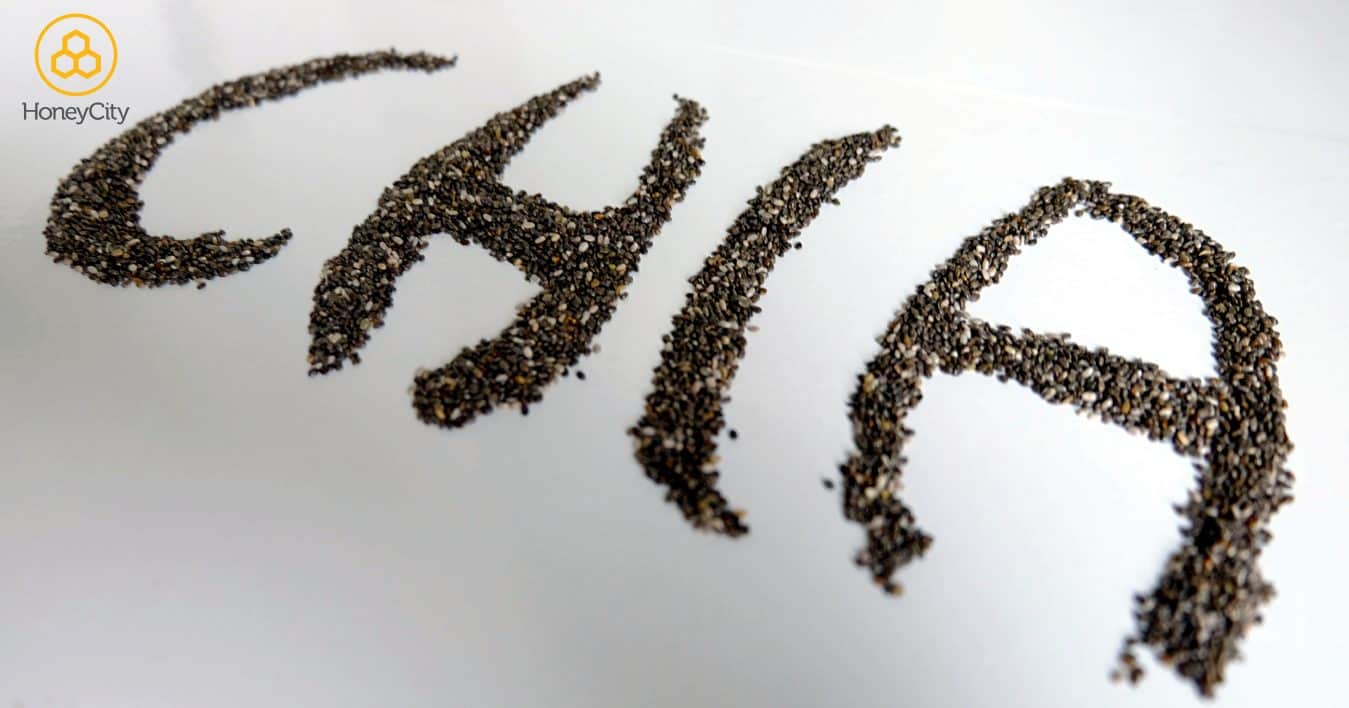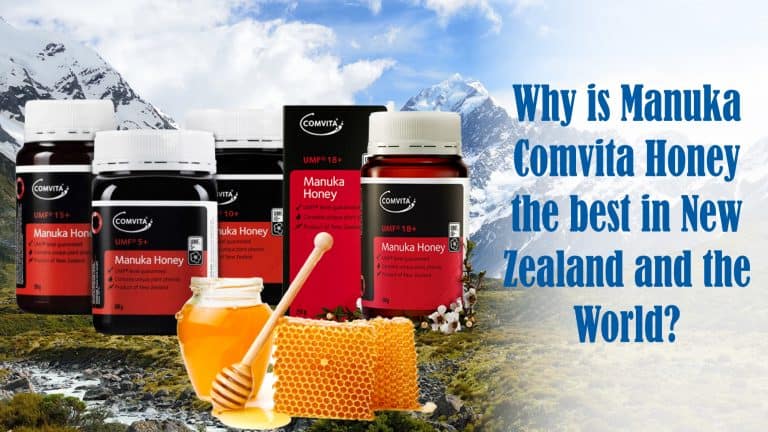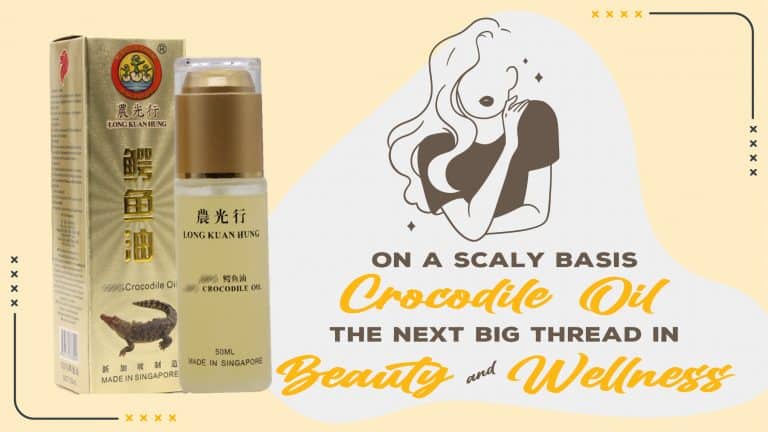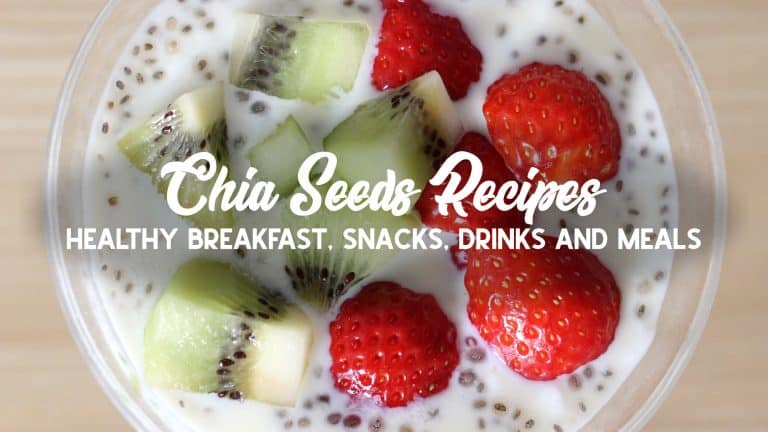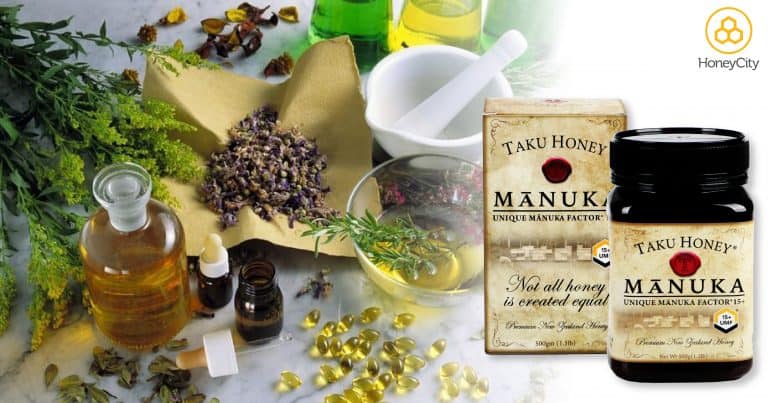Chia Seeds: What Are They and Why Are They a Life-changing Superfood?
Chia seeds are one of the healthiest foods you can find in modern times.
Its incredible nutritional content classifies it as a superfood, a term that refers to foods with maximum nutritional benefits with few calories.
Are chia seeds actually good for you? Let’s find out!
What Is Chia and Why Is It a Superfood?
Chia seeds are famous as a superfood rich in nutrients, next to manuka honey. They originated from Mexico and are highly valued for their medicinal properties and nutritional value.
It’s so valuable that it acted as a form of currency in the old days.
Chia is an edible seed that comes from the desert plant Salvia hispanica, a member of the mint family that grows abundantly in southern Mexico. In pre-Columbian times, they were a staple food for the Aztecs and Mayans.
“Chia” means “strength” in the Mayan language. The Aztec warriors depended on chia seeds for their survival rations while on war expeditions.
One tablespoon of this superfood was believed to sustain an individual for a day and they were “runners’ food” for the warriors for long-distance expeditions. The Aztecs also recognized its medicinal benefits, using it to stimulate saliva flow and to relieve joint pain and sore skin.
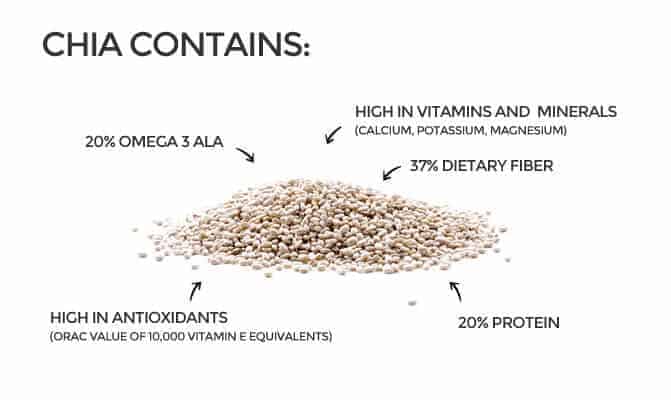
This superfood is packed densely with omega-3 fatty acids, even more so than flax seeds (another superfood).
Chia is so abundant in antioxidants that the seeds don’t deteriorate easily and can be stored for long periods without becoming going bad.
You can easily consume them straight and get the nutrients directly without grounding them.
Besides antioxidants, it also provides an abundance of fibre (100 grams gives you 27.6 grams of fiber), calcium, magnesium, zinc, manganese, phosphorus, copper, iron, molybdenum, niacin, and iron.
Chia Seeds Benefit the Skin, Heart, Digestive System and Help Release Energy Gradually
Recent research has found even more benefits. Eating chia seeds regularly promotes healthy skin and anti-ageing, builds up stronger bones, muscles, and tissues, and helps support a stronger heart and digestive system.
Now, new research is being conducted to assess the benefits for diabetics. Researchers found that when chia seed is added to water and left to sit, it forms a gel.
Researchers suggest that this reaction also takes place in the stomach, slowing the process by which digestive enzymes break down carbohydrates and convert them into sugar. It becomes a healthy way of providing energy to diabetics as well as to normal individuals.
Chia is already being added to a range of foods due to its high nutrition and stability. Some farms are feeding chia seeds to chickens to lay eggs rich in omega-3 and to obtain chicken meat enriched with this healthy fat.
Cows are also fed to produce milk rich in omega-3. Many food manufacturers are now adding them to a range of products, from infant formulas to baby food, nutrition bars, yogurt, baked food and more.
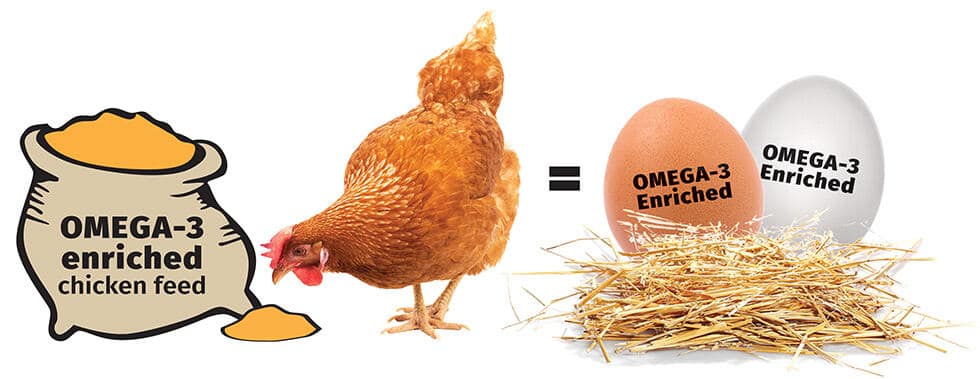
Chia seeds have a nutty flavor. You can mix them in water and add lime, lemon juice, and sugar to make a drink known in Mexico and Central America as “chia fresca”.
Sprinkle ground or whole chia seeds on cereal, in yogurt or salads, eat them as a snack, or grind them and mix them with flour when making muffins or other baked goods.
Ways to Use Chia Seeds

There are many ways to use chia for your daily consumption. Be creative and turn it into a dish, dessert or snack for the family! Here are some suggestions:
- Chia Seed Pudding: Turn this into a pudding that’s high in protein, omega-3, and fibre. Simply add 1/4 cup of chia to 1 cup of liquid like milk or fruit juice. Refrigerate for 15 minutes and add nuts or fruit if you wish. Since it’s low in calories, chia seed pudding also makes for a great weight loss plan!
- Chia Seed Smoothies: As mentioned, chia turns into a gel when you combine 1/4 cup of chia and 1 cup of liquid. Let it sit until the texture becomes soft gelatin. Make a smoothie and add it inside for a richer consistency.
- Replacement for Eggs: Substitute chia seeds for eggs in baking! Combine 1 tablespoon of chia with 3 tablespoons of water and let it sit for 5 minutes until it turns into a gel-like consistency. This mimics the runniness of raw scrambled eggs.
The Nutrition Profile of Chia
This superfood is dense with nutrients, minerals, vitamins, omega-3 fats, fibre, and protein:
- Omega-3 fatty acids (4915 mg)
- Omega-6 fatty acids (1620 mg)
- Dietary fiber (11g – 42% recommended daily value)
- Protein (4.4g – 9% RDV)
- Calcium (77 mg – 18% RDV)
- Copper (0.1 mg – 3% RDV)
- Zinc (1.0 mg – 7% RDV)
- Phosphorus (265 mg – 27% RDV)
- Potassium (44.8 mg – 1% RDV)
The nutrients don’t end here – chia also contains essential fatty acids, alpha-linolenic and linoleic acid, mucin, and strontium. It also has Vitamins A, B, E, and D, and minerals including sulphur, iron, iodine, magnesium, manganese, niacin, thiamine. They are a rich source of antioxidants.
The best part is that they’re also considered a “whole grain” food, usually grown organically naturally free of gluten.
You can read how I tried eating chia seeds (9 different brands) to see which brand is the best!
Black vs White Chia Seeds

Why are there black and white variants of chia seeds?
Chia is naturally grown as a combination of both black and white seeds. Black chia seeds form the majority of the chia grown while their white counterparts are found in less abundance.
Neither black nor white chia is better than the other – both can be considered equal because any nutritional difference is only minimal.
When you shop for chia, avoid the seeds that look brown or tan, a telltale sign of an inferior nutritional content. This is because they are immature seeds or not even chia, but some form of weed seed.
Where Can I Buy Chia Seeds in Singapore?
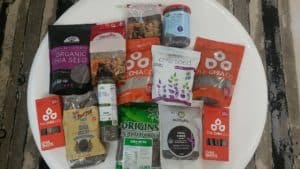
You can buy chia, quinoa, manuka honey, apple cider vinegar in Singapore from:
| Type of Location | Examples |
| Supermarkets |
|
| Supplement Food Shops |
|
| Online shops |
|
Share in the comments on how you eat your chia seeds!

